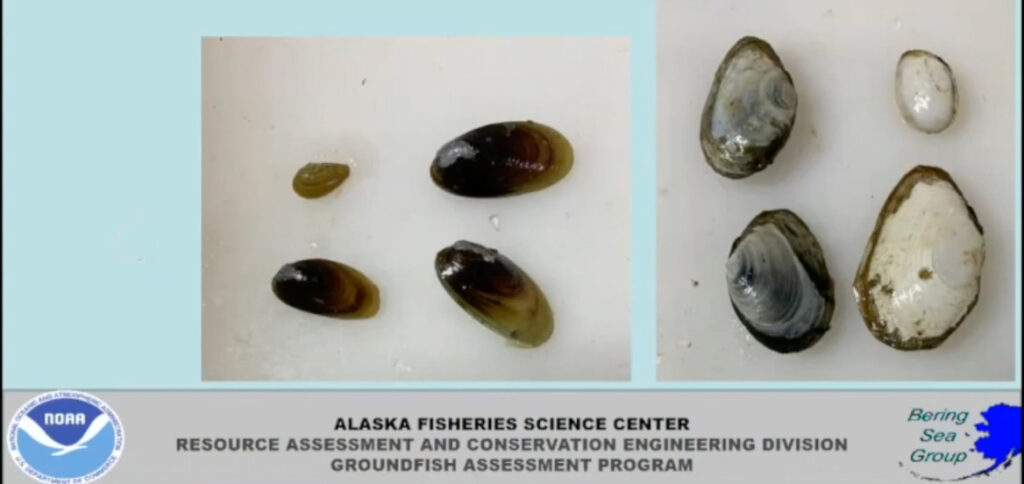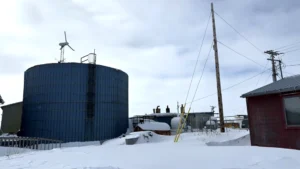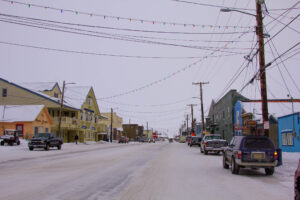Researchers have found a high level of potentially harmful algae in the waters near Teller, Brevig Mission, Wales, Little Diomede, and Shishmaref. They are now advising that residents of those areas use caution when consuming locally caught subsistence marine mammals and birds.
From August 18th-20th, the research ship the Norseman II was collecting seawater samples and noticed high levels of a particular type of algal bloom, known as the Alexandrium cysts, catenella alga, in the waters around those villages. The largest concentration of the blooms was found in the waters near Little Diomede.
On Friday, August 19th, the vessel traveled near the Diomede islands and collected a water sample with extremely high concentration of the algae, with over 100,000 cells per liter of seawater, while 1.5 miles from the islands.
The Norseman II has already issued advisories in the waters around Gambell and Shishmaref due to the unusually high level of blooms in the water. However, the water sample taken has not yet been tested for the presence of saxitoxins. Now, other organizations, such as NSHC and Alaska Sea Grant are also collecting samples to test for saxitoxins.
A statement released by Norton Sound Health Corporation (NSHC) described the algal blooms as “a phytoplankton that can produce saxitoxins.”
Seafood infected by these saxitoxins may cause paralytic shellfish poisoning, or PSP, in anyone that consumes it. According to NSHC, PSP affects nerve function. If a high concentration of saxitoxins are consumed, humans, marine mammals, and seabirds will also experience breathing issues and paralysis.
Alaska Sea Grant warns subsistence users that consuming infected walrus intestines, stomach, and other parts can produce the same symptoms as consuming infected seafood. They also warn subsistence users that the toxins are odorless, tasteless, and invisible, and that freezing or cooking infected food will not kill the toxins.
NSHC recommends that anyone who feels ill after eating shellfish should contact their health provider immediately, and that anyone who sees marine wildlife dead or behaving strangely should contact UAF Alaska Sea Grant at (907) 434-1149.





